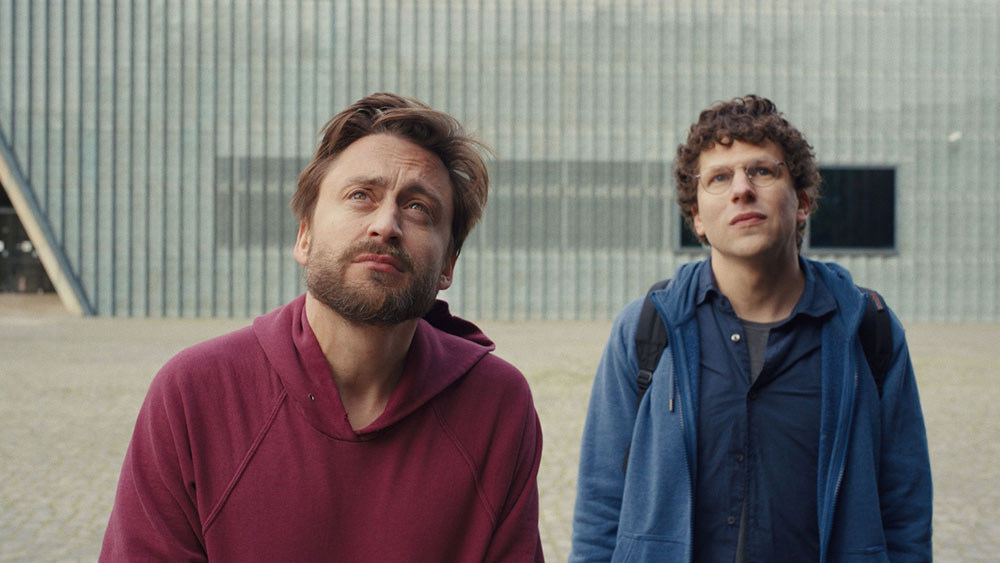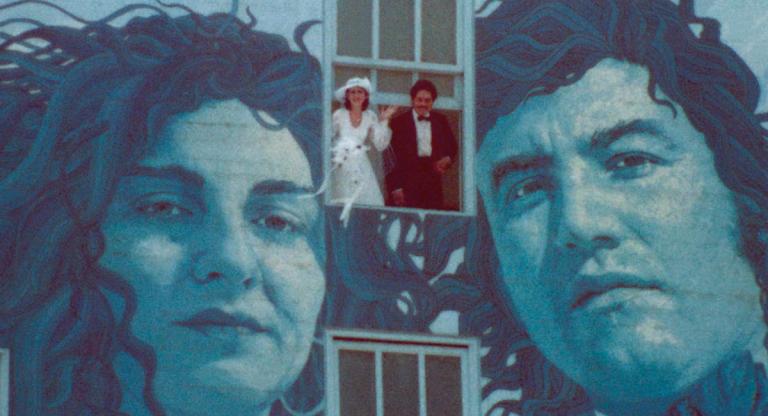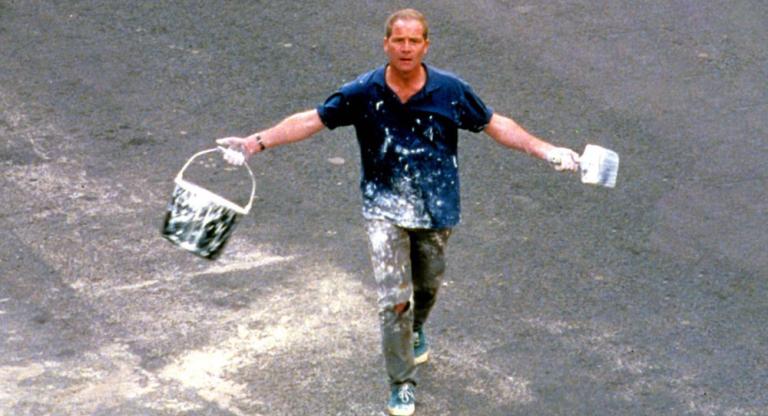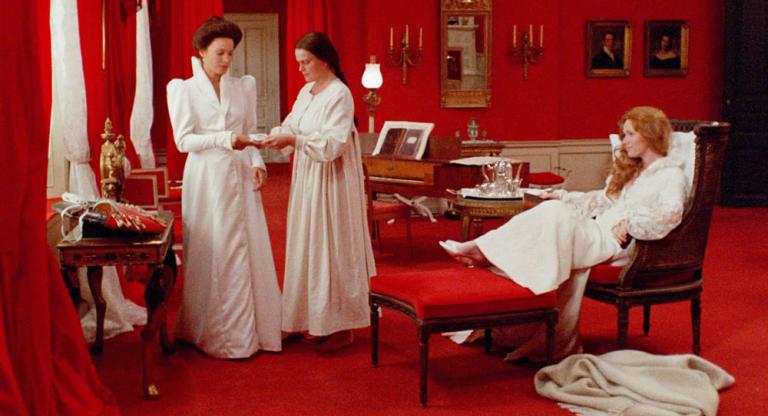Viewed on a screen in my apartment, much of the 40th anniversary year of the Sundance Film Festival seemed like it did when I was there in the flesh. Maybe that’s because from 1989 to 2020, I attended the festival every year, and therefore had a map of the town—the theaters, the bus routes, the restaurants—in my head. This year, I conferred by text, phone, and email with the same people with whom I once shared a house and sat with at screenings. We exchanged film recommendations, gossip, and the usual speculations about the future of movies and of Sundance; I’ve heard that the festival might not continue the remote viewing that began following the onset of the Covid-19 pandemic in 2021. That would be a mistake.
My first year at Sundance was the year of Steven Soderbergh’s sex, lies, and videotape (1989). The myth is that it alone brought the deluge of industry suits to Park City. I’m not sure that’s really the case, but the film was the start of the most prolific, eclectic, brilliant individual career since American directors went freelance, that is to say since the end of the studio system that allowed Howard Hawks and John Ford to go from one picture to the next. The closest Soderbergh ever came to that studio situation was a five-year deal with Warner Bros./Discovery/HBO/MAX, or whatever it now calls itself. Soderbergh gave them their money’s worth, but they often failed to get his movies the attention they deserved. It was baffling when a small gem like Kimi (2022) and a medium-budget thriller like No Sudden Move (2021) fell through the cracks.
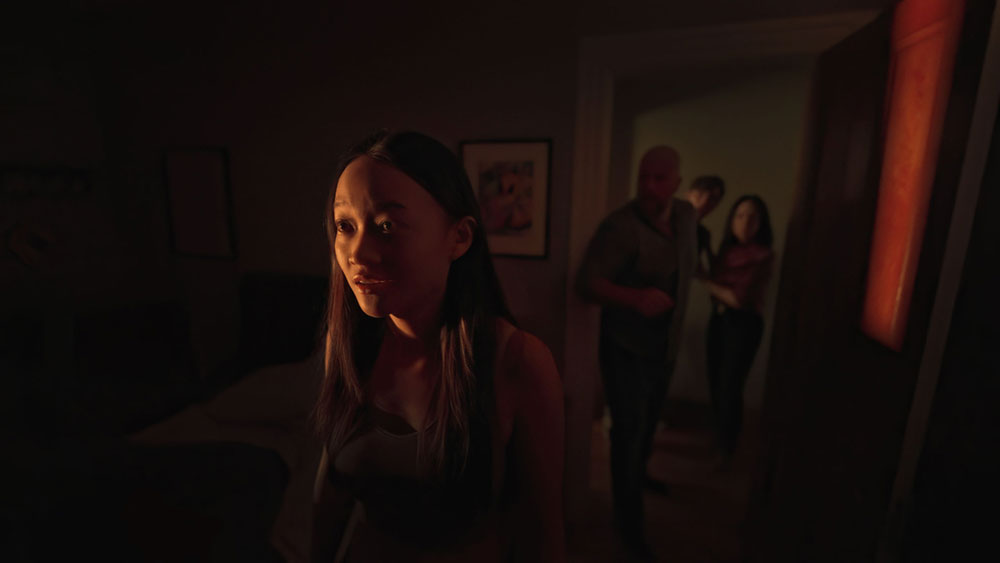
Thirty-five years after sex, lies, and videotape, Soderbergh returned to Sundance with Presence (2023), which was easily the most exhilarating film of the festival this year. It is a camera movement tour-de- force in the form of a ghost story, where the unseen presence that haunts all movies—the camera itself—becomes the titular character and is marked by the impulses, desires, humor, anxieties, athleticism, and even moral dilemmas of the filmmaker himself. (In an interview I conducted with Soderbergh for Filmmaker Magazine, he describes the “presence” as ending up “14 inches from a very personal form of murder,” which, after all, is one of the reasons we watch horror films.) Presence is not only Soderbergh’s most radically modernist movie, it is his most personal. He even financed it himself.
Richard Linklater also returned to the festival, where in 1991 he showed his first feature Slacker, a portrait of Austin, Texas, and its mostly youthful, anxious inhabitants. As eclectic as Soderbergh, and nearly as prolific, Linklater has presented about half a dozen films at Sundance, among them, Waking Life (2001), Before Sunset (2004), and the extraordinary Boyhood (2014). This year he brought two movies: Hit Man, a hilarious, dark-edged screwball comedy that Netflix will release in June, and Hometown Prison, a feature-length documentary essay that will be the first episode of HBO’s new series God Save Texas, which is scheduled to come out later this month. In Hit Man, Glen Powell plays a self-effacing college professor who moonlights for a laughably short-handed New Orleans police department and is assigned to go undercover as a killer for hire. He discovers that he’s good at entrapping all kinds of ordinary folks who want to off their spouses, family members, and business associates. But when he falls for a woman (Adria Arjona) who is being threatened by her ex, his hitman identity takes over what he assumed was his real self. The message to his college class: You can be anyone you want to be.
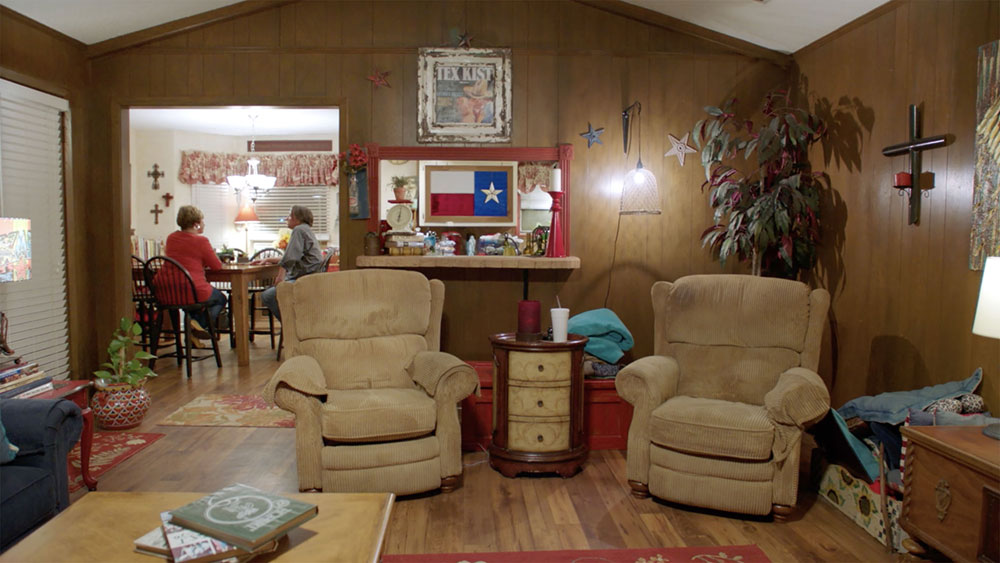
Hit Man is terrifically entertaining, but Hometown Prison is something more. Linklater grew up in Huntsville, where he was a star high school athlete and the town’s local industry was the Texas prison system. His family moved away in 1981, before Huntsville took advantage of a policy change regarding capital punishment. When he returned in 2023, his hometown had become the execution capital of the United States; many of his former school mates and their parents had spent part of their lives working for the prison system or as inmates. Often accompanied by his friend, the Pulitzer Prize winner Lawrence Wright, on whose book God Save Texas the HBO series is based, Linklater visits old friends and meets up with people who have no idea who he is. He is an empathetic listener, as well he might be, because he admits to the same compartmentalizing that they practice—that we all practice. Perhaps it’s a matter of degree, but I marvel at how Linklater is able to whole-heartedly laugh with people who eat in a greasy spoon where the menu on the wall lists a fried beef patty as “Ole Sparky.”
It's probably unfair to compare the work of two of America’s greatest living filmmakers to the relative novices that make up most of the Sundance slate. But with one exception, the dozen or so narrative films I watched were less than compelling. Some years at Sundance are like that. Yes, many people have stories that are unique and personal, but have neither the skills nor talent to shape them into movies that matter. Last year’s grand prizewinner, A.V. Rockwell’s A Thousand in One, is itself one in a thousand—a vivid New York story that’s both intimate and epic. Rockwell is right on the zeitgeist just as Linklater and Soderbergh were and still are. The only fiction film that came close to those filmmakers’ work this year was Jesse Eisenberg’s A Real Pain. The film stars the director and Kieran Culkin as cousins who decide to honor the memory of their grandmother, a Holocaust survivor, by joining a group tour of Auschwitz. Of course, nothing works out as planned. The Holocaust remains incomprehensible although all too real, which is exactly how the cousins experience each other despite their efforts to revive their childhood connection. A Real Pain is excruciatingly funny and achingly sad. And since it is mostly set in Poland, why not let piano études and nocturnes by Chopin set the tone and the pace? Searchlight will release A Real Pain later this year, and I can’t wait to see it again. For the record, I found Eisenberg’s first film, When You Finish Saving the World (2022), as insufferably coy as its title.
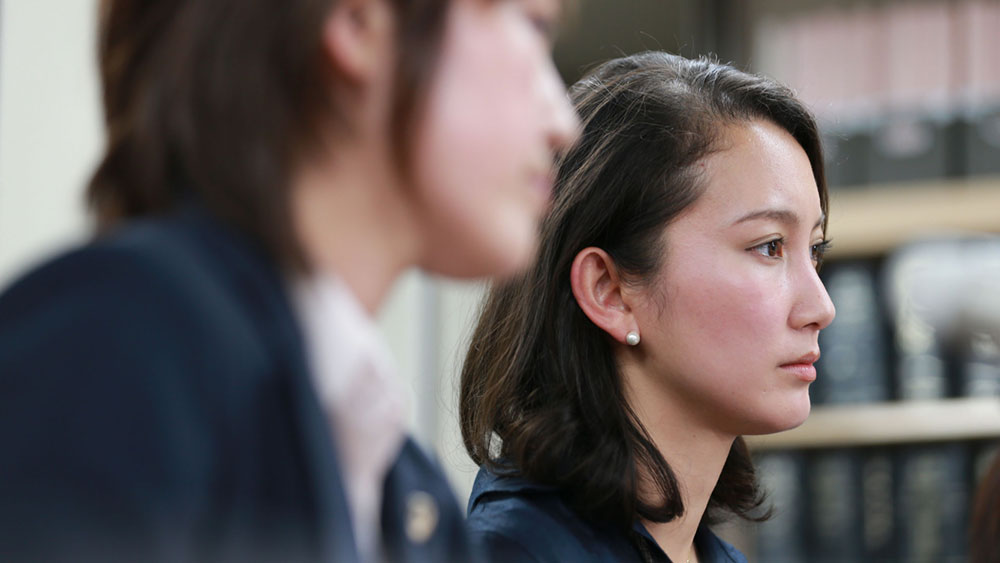
A few other narrative films had some memorable single scenes and performances. Nathan Silver’s Between the Temples is easily the best of his comedies, which lean and then lean some more on tortured Jewish male psyches. But the film is redeemed by Carol Kane’s fabulously complicated character study. She is Silver’s Gena Rowlands. Titus Kaphar’s Exhibiting Forgiveness is clumsily directed and both under- and over-written. But Andre Holland’s performance as a painter whose work is very much like Kaphar’s own holds the film together. And there is one great scene that jolted this art-world denizen into thinking harder about what happens to artists, and in this moment, to artists of color in particular, when their most personal work is bought by wealthy white guys to hang, like trophies, in their offices and bedrooms.
The documentary sections at Sundance were rich and varied. Do not miss Shiori Ito’s Black Box Diaries when it plays in MoMA’s Doc Fortnight next month. Ito was in her early twenties and working as an intern at a TV news organization when she was raped by one of the most well-connected journalists in Japan. Against her family’s wishes, obstacles put in place by the police, and laws that have not been changed for centuries, she brought him to trial three times and won all three cases over the course of eight years. During that time, she documented her investigations on low-end video and enlisted professional camera people during public events. She investigated her own rape and efforts to bring the rapist to justice, using her skills, resources, and mission as a journalist to speak truth to power. After she won the first case, she wrote Black Box (2017), an account of her investigations and struggles in the court system. The book became a bestseller, but the trials and appeals continued, as did simultaneously her harassment and elevation to a heroine of #Metoo in Japan. Two years ago, she turned years of footage over to a great editor, Ema Ryan Yamazaki, and together they crafted this thrilling documentary quest for social justice. Among other powerful docs were Porcelain Wars, an inside view of Ukrainians fighting for their freedom and autonomy (the director and cameraman are part of the fighting force) and the WTF of the festival, War Games, a film that truly scares me, not for what it is or says, but because it would be ridiculously easy to excerpt and use its clips against the democrats in the 2024 election.
